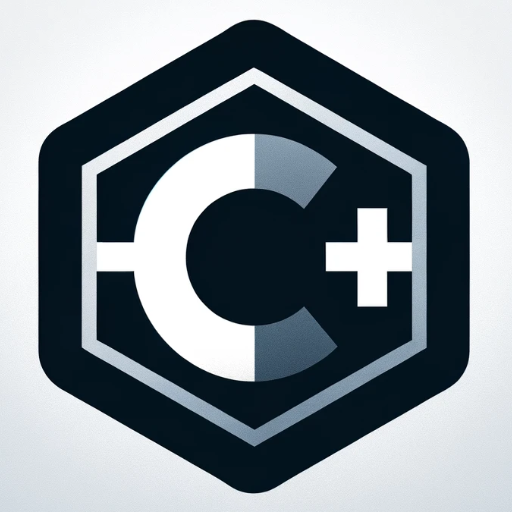IDA Pro - C++ SDK (and decompiler)-AI-driven disassembler SDK tool.
AI-powered plugin development for IDA Pro.
IDA Pro and Decompiler SDK C++ Coding Assistant
How to build a plugin with ida-cmake?
Write a simple modern hello world plugin
Enumerate structures and their names
What are netnodes?
Related Tools

Coding Expert
Coding expert for popular frameworks and languages

Javascript
Your personal Javascript assistant and project generator with a focus on responsive, beautiful, and scalable code. Write clean code and become a much faster developer.
devin

C++
Get help from an expert in C++ coding, trained on hundreds of the most difficult C++ challenges. Start with a quest! ⬇🧑💻 (V1.7)

Code Interpreter
Interpret and dissect any code

C++ (Cpp)
Your personal highly sophisticated C++ (Cpp) copilot, with a focus on efficient, scalable and high-quality production code.
20.0 / 5 (200 votes)
Introduction to IDA Pro - C++ SDK and Decompiler
The IDA Pro C++ SDK and Hex-Rays decompiler are essential tools in reverse engineering, offering extensive capabilities to dissect, analyze, and understand binary programs. The SDK allows developers to extend IDA Pro's core functionality through custom plugins, scripts, and modules written in C++. It provides a comprehensive API that interacts directly with the disassembled database (IDB), enabling detailed programmatic analysis of binary files. The design purpose of IDA Pro's SDK is to offer a flexible platform for creating specialized tools that can automate repetitive tasks, perform complex analysis, or integrate IDA Pro with other tools and workflows. The SDK abstracts the complexities of low-level binary analysis, providing functions to manipulate disassembly, manage data flow, analyze control structures, and more. The Hex-Rays decompiler, tightly integrated with IDA, translates binary code into more readable C-like pseudocode, facilitating easier comprehension of complex programs. For example, in a scenario where you need to automate the identification of specific patterns within a binary, you could write a plugin using the SDK to traverse the disassembled code, recognize patterns, and highlight them within the IDA interface. This enables quicker and more efficient analysis of large or complex binaries.

Main Functions of IDA Pro - C++ SDK and Decompiler
Disassembly Manipulation
Example
Using the SDK, you can create plugins that automatically rename functions, apply specific types to variables, or annotate code with comments based on custom analysis.
Scenario
A malware analyst might write a plugin that scans the disassembly for obfuscated functions, renames them based on de-obfuscation heuristics, and then retypes variables according to the recognized patterns. This saves time and enhances the accuracy of the analysis.
Custom Analysis
Example
The SDK allows users to implement custom analysis routines, such as a plugin that identifies and flags all cross-references to a specific function or data structure.
Scenario
In a reverse engineering project where understanding the use of a particular encryption function is critical, a plugin could be developed to trace all references to this function, generating a report of where and how it is used within the binary.
Integration with Hex-Rays Decompiler
Example
You can write plugins that extend the functionality of the Hex-Rays decompiler, such as improving the decompiled output for specific patterns or adding custom code annotation features.
Scenario
In a situation where a reverse engineer needs to deal with complex control flow, a plugin could be developed to modify the pseudocode output to make the control structures more readable, or even to simulate certain parts of the code to predict their behavior in different execution paths.
Ideal Users of IDA Pro - C++ SDK and Decompiler
Reverse Engineers and Malware Analysts
These users benefit from the SDK by being able to create custom tools that automate and enhance their analysis processes. The ability to write plugins that can interact directly with the disassembly allows them to tackle complex reverse engineering tasks more efficiently, such as unpacking obfuscated binaries or identifying code similarities across different samples.
Security Researchers and Exploit Developers
Security researchers use the SDK to develop plugins that analyze vulnerabilities within binaries, such as automatically identifying potential buffer overflows or areas susceptible to exploitation. Exploit developers can use the SDK to streamline the discovery and development of exploits, creating tools that integrate deeply with IDA Pro's analysis capabilities.

Steps for Using IDA Pro - C++ SDK (and Decompiler)
Visit aichatonline.org for a free trial without login.
Take advantage of this free trial to explore the IDA Pro environment and understand its capabilities before committing to a full license.
Set Up the Development Environment.
Install IDA Pro and the Hex-Rays decompiler, then download the IDA Pro SDK from the official Hex-Rays website. Ensure you have a working C++ compiler compatible with your OS.
Explore the IDA Pro Interface and SDK Documentation.
Familiarize yourself with the IDA Pro UI and dive into the SDK documentation to understand the available APIs, sample plugins, and code snippets provided by the SDK.
Develop Your Plugin or Script.
Using C++ and the IDA SDK, start creating your custom plugins or scripts. Leverage the provided APIs to manipulate the disassembly database, automate tasks, or enhance the functionality of IDA Pro.
Test and Deploy Your Plugin.
Compile your plugin and load it into IDA Pro for testing. Debug any issues, optimize performance, and when satisfied, deploy it within your IDA Pro environment or share it with the community.
Try other advanced and practical GPTs
Xplorer
AI-Powered Academic Insight and Analysis

The Video Content Creator Coach
AI-driven coach for crafting compelling video content.

GPT Customizer, File Finder & JSON Action Creator
AI-powered tool for customized GPT and file retrieval

AIProductGPT: Add AI to your Product and get a PRD
AI-powered solutions for product innovation.

Blender Guru
Master Blender with AI Assistance

My Lawyer
AI-powered legal expertise on demand.

Code Guru
Enhance your code with AI insights.

Assistant Hunter
AI-powered assistant discovery made easy
Your AI Council
AI-powered insights from multiple angles

Logo Maker GPT
AI-Powered Logo Creation Made Simple

Realism GPT
AI-powered tool for photorealistic imagery.

Storybrand Buddy
AI-Powered Storytelling for Your Brand.

- Plugin Development
- Reverse Engineering
- Binary Analysis
- Malware Research
- Debugging Automation
Detailed Q&A on IDA Pro - C++ SDK (and Decompiler)
What is the primary use of the IDA Pro - C++ SDK?
The IDA Pro - C++ SDK is used to create custom plugins and scripts that extend or automate the functionality of IDA Pro. It allows developers to manipulate disassembled code, analyze binaries, and enhance the decompilation process.
How can I automate repetitive tasks in IDA Pro?
Using the IDA Pro SDK, you can write C++ scripts or plugins to automate repetitive tasks such as renaming variables, adding comments, or analyzing specific code patterns. This enhances productivity and ensures consistency in your workflow.
Can the IDA Pro - C++ SDK be used to create custom analysis tools?
Yes, the SDK allows you to develop custom analysis tools that can integrate seamlessly with IDA Pro. These tools can perform specific types of code analysis, generate reports, or interact with other parts of the IDA database.
What is the Hex-Rays decompiler, and how does it relate to the SDK?
The Hex-Rays decompiler is an add-on for IDA Pro that converts disassembled machine code into a more readable C-like pseudocode. The SDK provides APIs that allow you to interact programmatically with the decompiler, enabling custom decompilation workflows.
How can I ensure my plugin works across different versions of IDA Pro?
To ensure compatibility, follow best practices in plugin development, avoid deprecated APIs, and test your plugin with different IDA Pro versions. The SDK's backward-compatible design helps mitigate issues, but testing is essential.